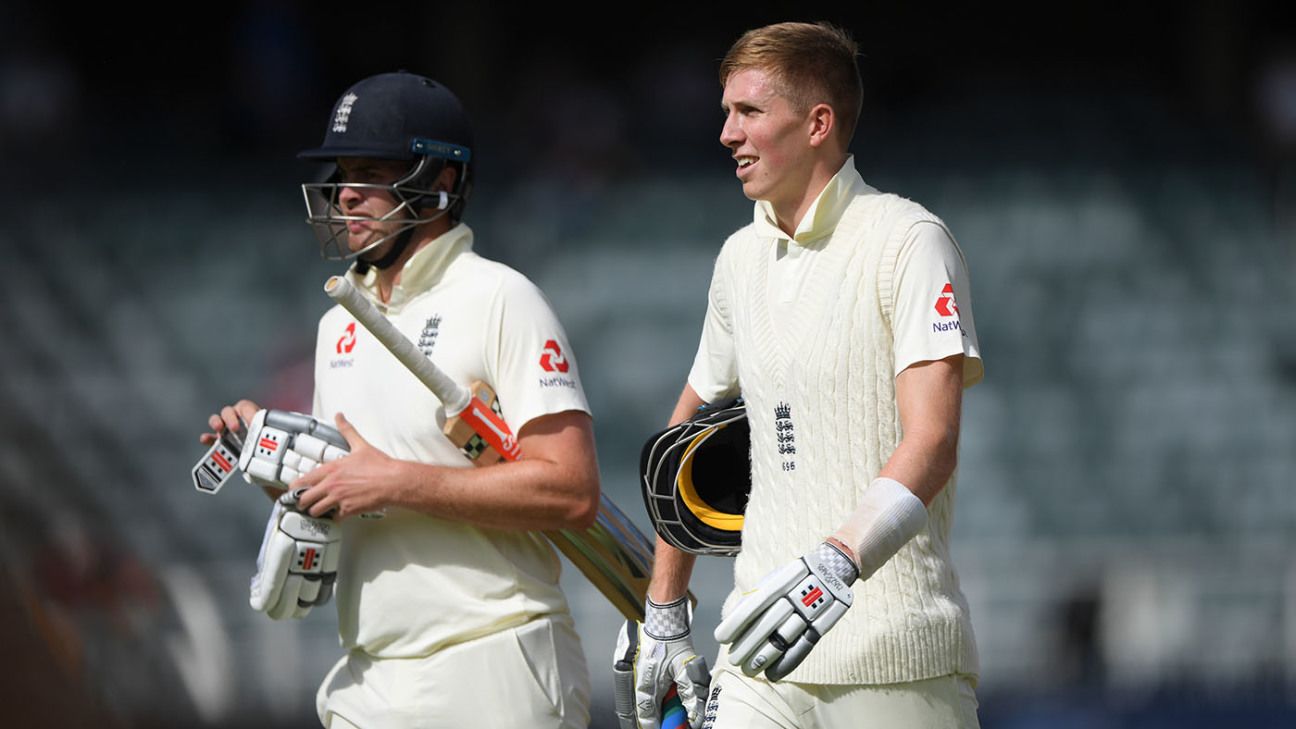
England's bowlers have been obliged to delay their return to training due to complications in delivering safety protocols.
The ECB had hoped that bowlers in the enlarged training squad picked to prepare for an anticipated return of Test cricket in July would be able to return to training at their respective local county grounds on Wednesday. But issues in establishing uniform practices that minimise the chances of infection have proved slightly harder to implement than envisaged and a spokesperson suggested training would now not start until Thursday "at the earliest".
Among the issues understood to have contributed to the hold-up is a scarcity in personal protective equipment (PPE) to be worn by physios and a delay in some batches of balls reaching the bowlers (each will use their own supply for hygiene reasons). All players will also need to have completed the appropriate online awareness module before they can attend.
ALSO READ: How are cricketers keeping fit in lockdown?
The England management remain hopeful training will resume later this week. The hiatus is not expected to cause any delay in the start date of the international season which remains July 8. It is understood the ECB has acquired an adequate supply of PPE, but it has not reached the various county grounds as yet.
At this stage, the aim was only for bowlers in the enlarged squad of around 30 players to return to action. With England's medical team suggesting it could take several weeks for the bowlers to build up to the fitness and intensity levels required to allow them to play international cricket with minimal risk of injury, the aim was for them to return to action first with the remaining players expected back in training at the start of June.
Coaches at various first-class clubs will be taken off furlough as required to oversee training, though the bureaucracy around that - and a conversation around who should pay for them - is another factor in creating a delay.
The enlarged training group - the ECB has made sure to avoid the word 'squad' - is likely to contain several seamers with a view to ensuring an adequate supply of net bowlers and in recognition of the fact the revised summer schedule is likely to involve back-to-back games. They also require enough players to stage inter-squad games as warm-up ahead of the internationals.
As things stand, West Indies are due to play a three-Test series to start the summer, with their captain Jason Holder admitting on Monday that there was a collective will to see "everybody getting back into the workforce" and to give players to opportunity "to actually make some money".
"We're agreeing protocols at the moment for England squad members from Lancashire to come back into Emirates Old Trafford to start training, and they will be starting training later this week," Lancashire's acting chairman, Les Platts, said. "I think we're aiming for Friday at the moment. That's not a guarantee, but it's what we're planning for at the moment. We've a lot of protocols to work through."
ALSO READ: England face Stokes dilemma as separate squads loom
With an increasing likelihood that two squads will be required - one for Tests, the other for limited-overs games - some tricky decisions loom for the selectors. Could Jonny Bairstow regain the gloves in limited-overs cricket, for example, if Jos Buttler is retained in the Test squad? Or will Buttler and Bairstow play white-ball cricket and allow an opportunity in the Test side for Ben Foakes? And if Joe Root, Ben Stokes and Buttler are absent from the limited-overs squad, could Alex Hales win a recall? The selectors are also understood to be considering placing further players on standby in case of illness or injury.
Other issues creating this delay include appointing a Covid-19 officer at each venue, as is required by government guidelines, and ensuring they are adequately briefed. None of the issues are believed to be especially serious or likely to cause a substantial delay. Indeed, they might be viewed as some of the inevitable hurdles likely to be encountered as the enormity of the task of staging international sport behind closed doors becomes clear.















 Phone: (800) 737. 6040
Phone: (800) 737. 6040 Fax: (800) 825 5558
Fax: (800) 825 5558 Website:
Website:  Email:
Email: 






